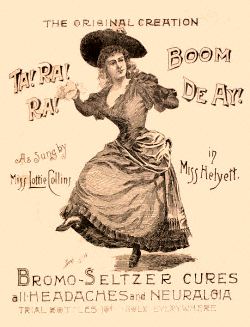See also
- Ay Ay Ay (disambiguation)
- Ayayayayay , a 1987 album by Popong Landero and Bagong Lumad
- Aiaiaiaiaiai , a 1987 song by Vopli Vidopliassova
- "Can You Hear Me? (Ayayaya)", a 2012 song by Wiley
" Ay ay ay ay " is the refrain of popular Mexican song "Cielito Lindo".
Ay ay ay ay and similar phrases may also refer to:
Amor may refer to:
HI or Hi may refer to:
The ballade is a form of medieval and Renaissance French poetry as well as the corresponding musical chanson form. It was one of the three formes fixes and one of the verse forms in France most commonly set to music between the late 13th and the 15th centuries.
Old or OLD may refer to:
Burden or burthen may refer to:
Ay, AY or variants, may refer to:
On the Road Again may refer to:
"Sweet Betsy from Pike" is an American ballad about the trials of a pioneer named Betsy and her lover Ike who migrate from Pike County to California. This Gold Rush-era song, with lyrics published by John A. Stone in 1858, was collected and published in Carl Sandburg's 1927 American Songbag. It was recorded by Burl Ives on February 11, 1941, for his debut album Okeh Presents the Wayfaring Stranger.

"Ta-ra-ra Boom-de-ay" is a vaudeville and music hall song first performed by the 1880s. It was included in Henry J. Sayers' 1891 revue Tuxedo in Boston, Massachusetts. The song became widely known in the 1892 version sung by Lottie Collins in London music halls, and also became popular in France.

"Cielito Lindo" is a Mexican folk song or copla popularized in 1882 by Mexican author Quirino Mendoza y Cortés. It is roughly translated as "Lovely Sweet One". Although the word cielo means "sky" or "heaven", it is also a term of endearment comparable to "sweetheart" or "honey". Cielito, the diminutive, can be translated as "sweetie"; lindo means "cute", "lovely" or "pretty". The song is commonly known by words from the refrain, "Canta y no llores", or simply as the "Ay, Ay, Ay, Ay song".
Everything's Gonna Be Alright may refer to:
Yes We Can may refer to:

"Hail to Pitt" is the most traditional fight song of the University of Pittsburgh, which is commonly referred to as Pitt. The saying "Hail to Pitt!" is also the most traditional and commonly used slogan of the University of Pittsburgh and its athletics teams. The slogan is frequently used in promotional material, printed on merchandise and souvenirs. It was also the title of a 1982 history of Pitt athletics by author Jim O'Brien. The slogan is often used among alumni as a statement of affiliation, including as a closing signature in conversation or correspondence between alumni, and is sometime abbreviated as "HTP" or "H2P", the latter of which is a registered trademark of the university and is frequently used on official university signage and merchandise.
Hey Mr. DJ may refer to:
"¡Ay, Amor!" is a ballad written and performed by Mexican singer-songwriter Ana Gabriel and produced by Mariano Pérez Bautista. It was released as the first single from her third studio album, Pecado Original (1987). This song became the second to spend 14 consecutive weeks at number one in the Billboard Hot Latin Tracks chart, after fellow Mexican singer Daniela Romo with "De Mí Enamórate", being surpassed in the same year by Yuri when her single "Qué Te Pasa" achieved sixteen weeks at the top of the chart.
"Qué Te Pasa" is a dance song written by J.R. Florez and Gian Pietro DiFelissati, produced by Felissatti and performed by Mexican singer Yuri. It was released in 1987 as the first single from her seventh studio album Aire (1987), and became her first number-one single in the Billboard Hot Latin Tracks chart and won the Lo Nuestro Award for Pop Song of the Year in 1989.
Come On Come On is a 1992 album by Mary Chapin Carpenter.
Ay Ay Ay may refer to:
Ay Amor may refer to:
Aye or AYE may refer to: